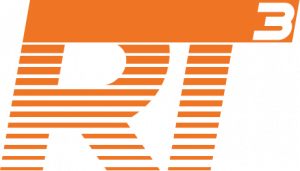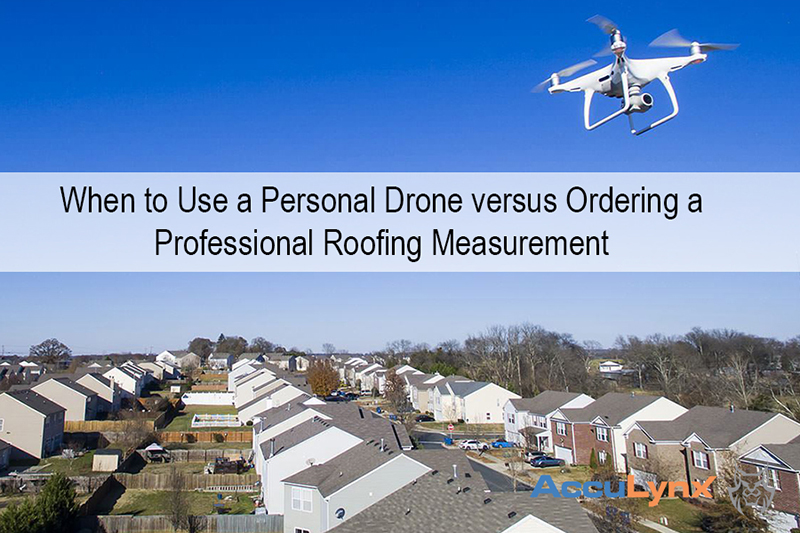Personal drones are increasing in popularity among roofing contractors so it’s important to know when it makes sense to use one and when it doesn’t.
By AccuLynx.
The ultimate toy-turned-tool for any roofer, drones have become popular for contractors in the roofing industry, for several reasons. As an effective tool that allows sales or project managers to visualize a project before making an estimate or starting work on a home, drones provide a real-time safer alternative to climbing up on a roof to take measurements or pictures of damage.
Drones for commercial business use are becoming more and more popular – but when does a toy become a tool, and when does it make more sense to acknowledge other technology to get the job done?
Do Your Research: Whether you’re looking to purchase a drone, or already own one, you’ll need to do your research on what model will be the most effective investment for your company. You’ll need to consider drone maneuverability, connection features (to your phone or CRM platform), cost, warranties and repair options.
DronesGlobe is a great source when you’re considering all of these options.
Get Certified: Did you know that to legally operate a drone for your business, pilots must have a “remote pilot airman certificate” issued by the Federal Aviation Administration (FAA)? Flying under the radar can have consequences for your business if not properly and legally vetted first.
Luckily, it’s easy to get certified. You can read all the FAQs here, and learn what steps you need to take to ensure you are legally operating your drone.
When To Use Your Drone: Once you’ve done your due diligence, you can start using your drone to help grow your business. Using your drone for the purpose of measuring a roof for replacement or remodel is certainly an option; however, as a non-reporting company using a drone, FieldPulse says, “Granted, most of the [drone] technology is designed for preliminary work such as design, roof replacement, or repair.”
Drones are most effective and provide the best time-savings when they are applied to design or remodel work.
Examples:
- Photos of Window Placement or Siding
- Damage Reports – places on the roof that may have been impacted by a storm or are tagged as the source of a leak inside a home.
Having a drone in these cases allows you to see current issues, make notes, and even allow the homeowner to see real-time shots of their property.
“…drones can’t be depended on to perform thorough inspections into the roof, [but] they can give a roofing company a good idea of what they’re dealing with before getting on the roof. Drones also allow roofers to view an entire area hit by a storm. They will have enough information to provide the right type of transportation and equipment needed to perform a proper inspection. (FieldPulse)
Additionally, if there is damage found on a roof by a drone, these photos can be shared with your foreman and crews so they know what safety gear to bring, and where the damage is on a home without the guesswork.
When Ordering a Roofing Report Is More Effective: Even an experienced roofer/drone operator will need to study any photos or footage of a property carefully in order to make a detailed estimate or contract. Drones may be effective tools, but they are essentially just eyes in the sky – you might still run the risk of the operator miscalculating or misjudging critical data that can impact your orders, scheduling, and bottom line.
Ordering a Roofing Report from a trusted third party vendor, such as EagleView or SkyMeasure (both of which are fully integrated with the AccuLynx platform and mobile app) will validate your estimate numbers, come quickly, and will already have accurate measurements mapped out, which will save your sales rep time in the field.
Know Your Teams’ Skillsets and Tools: Using drones for your roofing or contracting business can be a huge asset when it comes to documentation and archives. However, it’s important that you don’t come to rely on the skillset and license of one or two people.
Make sure your drone operators are professional – you are trusting them with an expensive piece of company property. While accidents can always happen, you should make sure that the person operating the drone always has their certified FAA license on hand, and can report back immediately if something does happen to the drone.
Know when a drone is an asset, and when it’s more cost and time effective to order a report. This may be up to your rep’s discretion, or you may have a protocol in place. Either way, it’s important to remember that while the drone is a fantastic piece of technology, that doesn’t always mean it’s the ONLY technology at their disposal.
This blog first appeared on AccuLynx’s blog and can be viewed here.
AccuLynx is designed to help contractors see their business more clearly and communicate better — there’s nothing to download or install — you just log in and get to work. Learn more at www.acculynx.com

